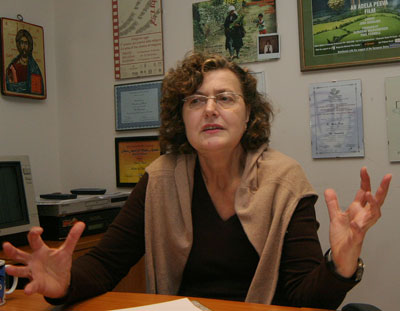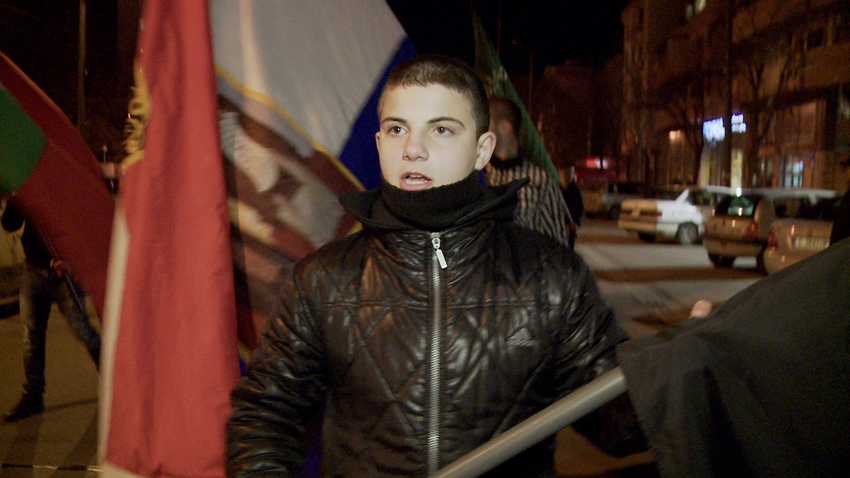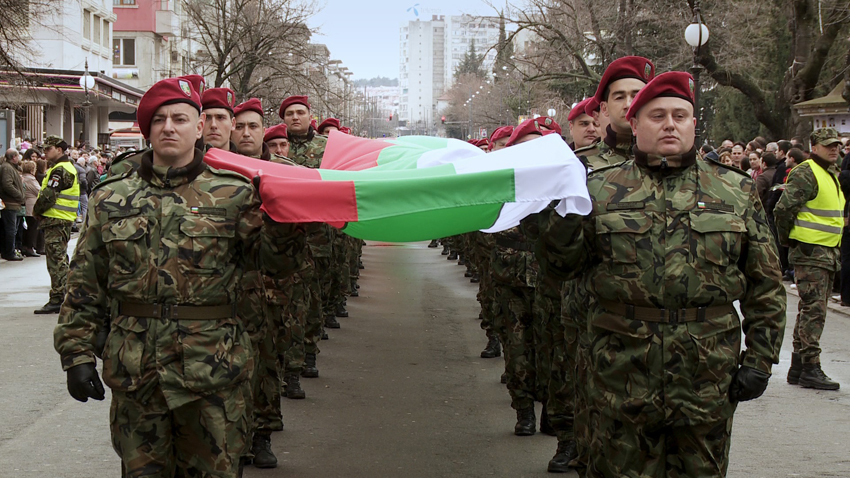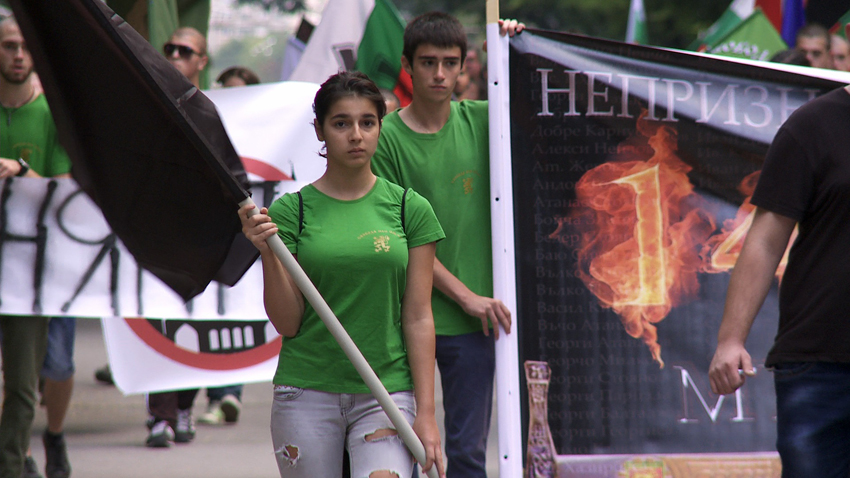New documentary by director Adela Peeva is to have its premiere on November 24 during the Kinomania 2017. It is called “Long Live Bulgaria” and presents different views towards serious issues – nationalism, rebirth of extreme nationalism, as well as the narrow line between patriotism and nationalism.
This is a non-narrative documentary but it is not because Ms. Peeva does not have a position. She has one and in an interview for Radio Bulgaria she delicately shared some of its nuances, but the director treats all people with respect letting them express their views freely. My task was to show the problem in its depth, she says. This is the first Bulgarian film focusing on nationalism in this country. We all know about this phenomenon or at least we have heard about it, but somehow we do not want to delve into it much.
Adela Peeva is the screenwriter and director of the film. Work on it took three years, during which the team filmed events and speeches in the cities of Sofia, Stara Zagora and Plovdiv:
 “The people I've filmed are quite young. They are 13 or 14-year-old, indicating that the age of participants has been dropping. They all declare that they are patriots, but in fact they lean towards nationalism. They are led by some patriotic feelings and say everything is in the name of a better Bulgaria. But they easily cross the border between patriotism and nationalism. They mix the concepts, I think. There are many questions. For example, what is patriotism, how far does it go, isn’t this concept misused? I filmed in schools in Stara Zagora, where there were children involved in meetings and marches. How come from the patriotic chants "Long Live Bulgaria", we immediately see them with torches in their hands as participants in nationalistic processions. In Plovdiv and Sofia we filmed massive event called ‘Lukov March’ – organized in memory of General Hristo Lukov, supporter of Hitler and Bulgaria joining the side of the Third Reich during WW2. The march also gathers foreigners, representatives of similar organizations - nationalists from Germany, Sweden, also extreme ones, who hold speeches ...”
“The people I've filmed are quite young. They are 13 or 14-year-old, indicating that the age of participants has been dropping. They all declare that they are patriots, but in fact they lean towards nationalism. They are led by some patriotic feelings and say everything is in the name of a better Bulgaria. But they easily cross the border between patriotism and nationalism. They mix the concepts, I think. There are many questions. For example, what is patriotism, how far does it go, isn’t this concept misused? I filmed in schools in Stara Zagora, where there were children involved in meetings and marches. How come from the patriotic chants "Long Live Bulgaria", we immediately see them with torches in their hands as participants in nationalistic processions. In Plovdiv and Sofia we filmed massive event called ‘Lukov March’ – organized in memory of General Hristo Lukov, supporter of Hitler and Bulgaria joining the side of the Third Reich during WW2. The march also gathers foreigners, representatives of similar organizations - nationalists from Germany, Sweden, also extreme ones, who hold speeches ...”

The idea for the film came during work on the previous film by Adela Peeva, dedicated to Bulgarian pilot Dimitar Spisarevski, who lost his life during the Second World War, defending the citizens of Sofia. Spisarevski is famous for taking down a USA heavy bomber by ramming his plane into it, thus preventing the attackers from dropping their deadly load on Sofia.

“I was shooting a procession to the grave of Spisarevski. I became interested in the people who were there, because I saw many educated people. And here comes the question - who helps young people understand basic and important concepts such as nationalism and patriotism? Do young people have role models and correctives? I do not think they do. Do we as parents, teachers, cultural institutions educate properly the children of Bulgaria? Are there influential people who guide them towards extreme views? The film shows footage shot at the time of Bulgaria’s national holiday March 3. When a teacher at school asks what a national holiday is, a boy says that it is a holiday of the Bulgarians, not of the foreigners, nor the Gypsies. Next to him there are girls belonging to this ethnic group and they become very ashamed. Children who speak this way are often seen holding torches at nationalistic gatherings. And again, what is this misunderstood patriotic feeling that makes them engage in such events?”

Before the film's premiere Adela Peeva was most often asked whether she kept to"political correctness" or whether there was self-censorship:
“No, I did not stick to political correctness. There is no point in doing anything if you keep to the established situation. The problem is alarming and the movie is highly influential. It ends with the famous Lukov March that takes place each year in February. It is partially allowed but takes place each year. In 2018, under the Bulgarian presidency of the Council of the EU, there will probably be tougher security measures. But the presidency will end, and we will be left with this problem among the young people. If we wanted our children to be extreme nationalists, then everything would be fine. If we do not want that, we need to do the right thing. If we do not care much about this issue, then we have a serious problem.”
The music, as in previous films by Adela Peeva, was recorded during shooting of the film. There are nationalist marches and patriotic songs, sung by children at school. An impressive counterpoint to nationalist marches is Beethoven's music - the symbol of united Europe in which we live.
English: Alexander Markov
“A story that is worthy of a movie” is what we often say when we hear about some incredible event or an interesting story. It is cinema that seems to help today's digitally dependent person, for whom the magical worlds of paper books..
After the success of the "We are the children of the river" festival in September, a civic foundation is once again collaborating with the Plovdiv City Centre Municipality. This time they have organised an exhibition of the same name, featuring..
The Gala Concert of the National Ballet of El Salvador will take place today at 16.00 in the State Opera House in Stara Zagora as part of the programme of the 54th International Festival of Opera and Ballet Arts . The founder and director of..
An art gallery in the middle of the forest – this is what eyewitnesses liken the roadside fountain with a gazebo near the village of Konche near..

+359 2 9336 661
